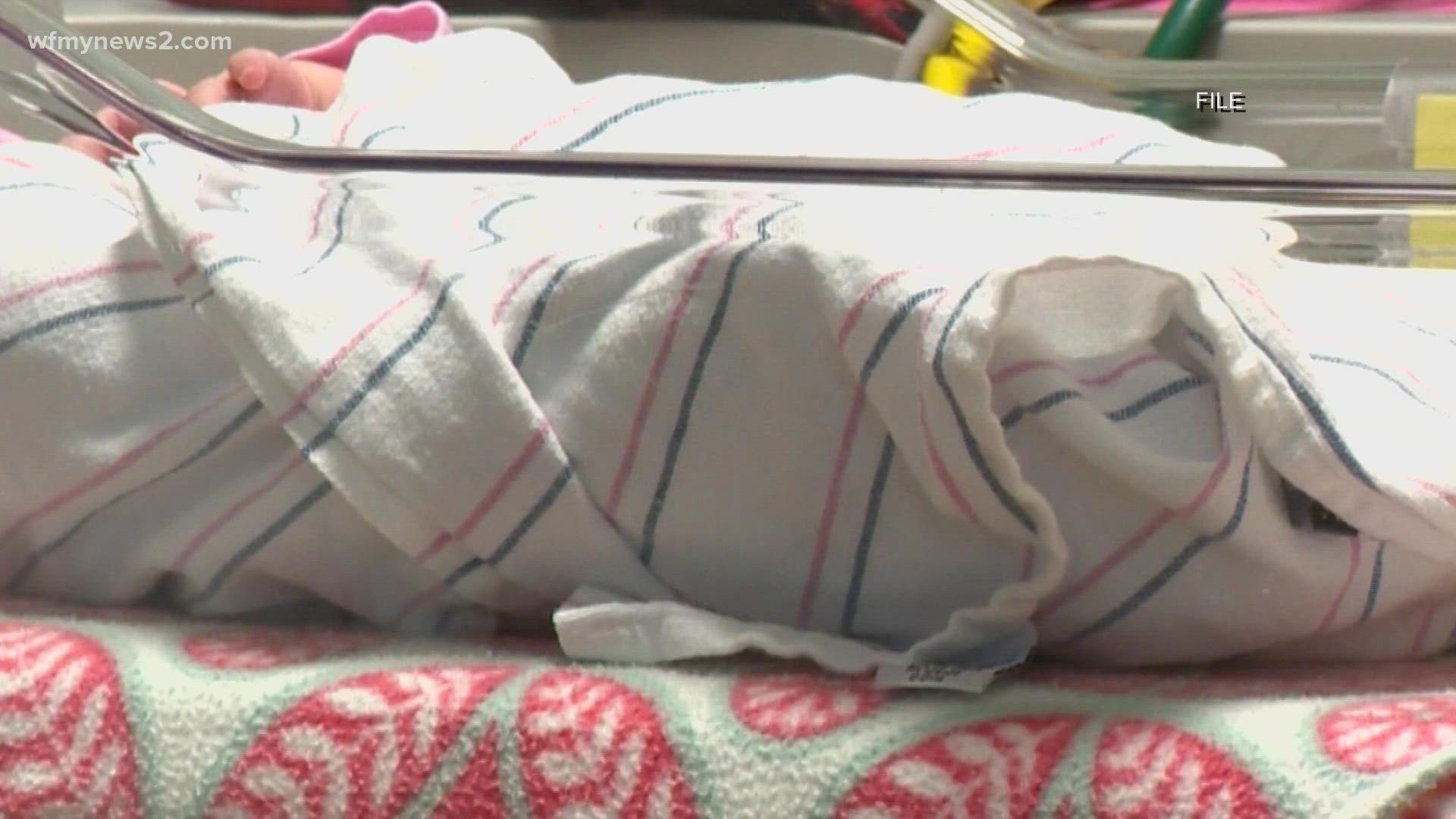GREENSBORO, N.C. — Recently, the March of Dimes released a report card on preterm birth rates across the country. North Carolina was given a "D" grade.
Sadly, nearly 700 women die from pregnancy complications each year in the U.S. and the majority are women of color, according to the CDC.
Having a baby is scary enough and when you add in these statistics, you want to know the team caring for you has the knowledge and resources needed for your safety.
Thankfully, work is being done on both the national and local level to improve care for moms and babies.
The U.S. Department of Health and Human Services is teaming up with 200 hospitals across the country including Cone Health. Through this collaborative, hospitals can compare data, study health risks and improve health equity for women and infants.
"It gives us a chance to benchmark our work, to learn from other people, to teach other people what's been working for us or what hasn't worked so that we can reboot," Sue Pedaline, Chief Nursing Officer and Vice President for Women's and Children's Services at Cone Health, said.
Pedaline added this is especially important for diverse populations like Greensboro.
According to the March of Dimes, the preterm birth rate for North Carolina is 10.8% For black women it's 48% higher. Black and Native American babies are twice as likely as white babies to die before their first birthdays. This is in part due to the lack of access to care.
"We have had a lot of interest looking at health equity because its pertains to the care we provide for women as well as the social determinants of health that really can impact women and children in our community," Pedaline said.
One step Cone Health has already taken to improve care, opening a food market at the new Cone Health Med Center for Women. These women often live in food deserts and this is where they can go for prenatal care.

